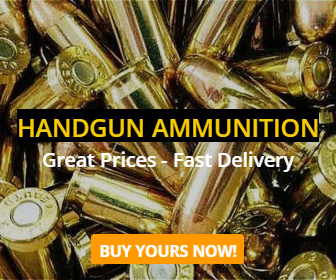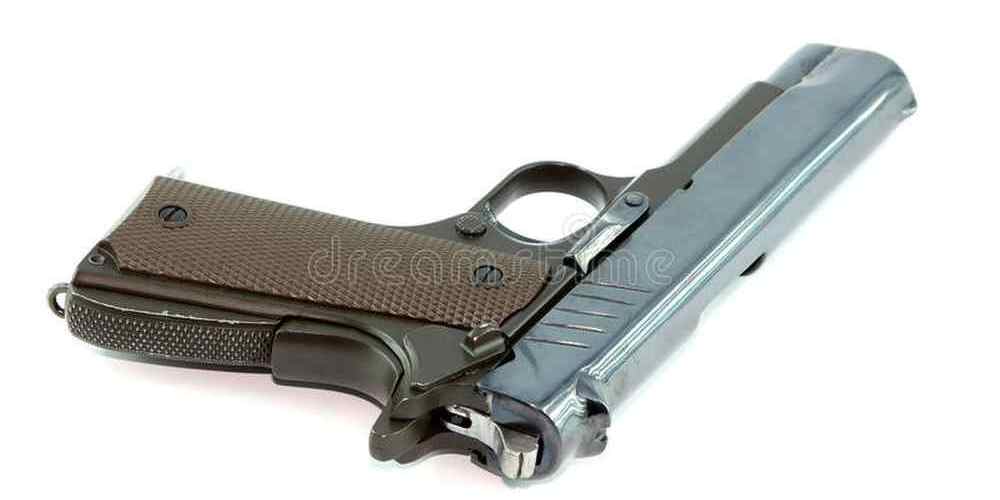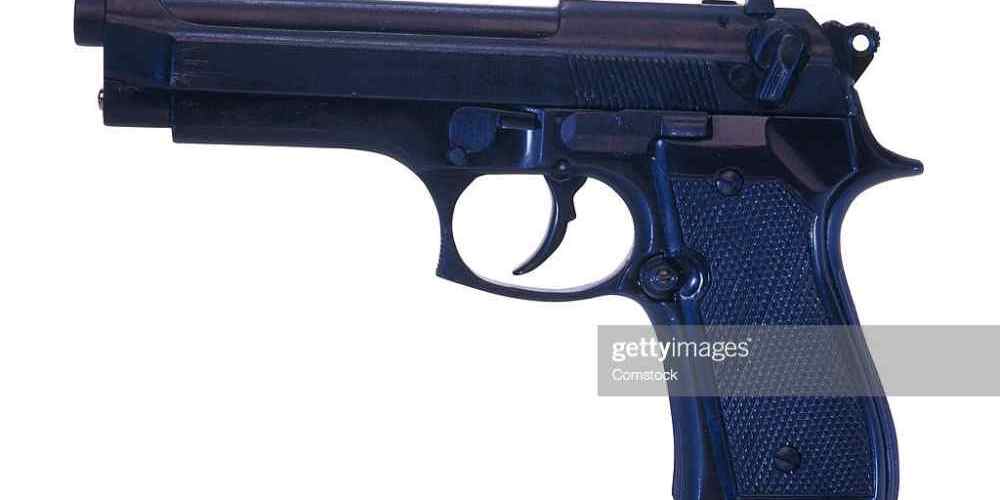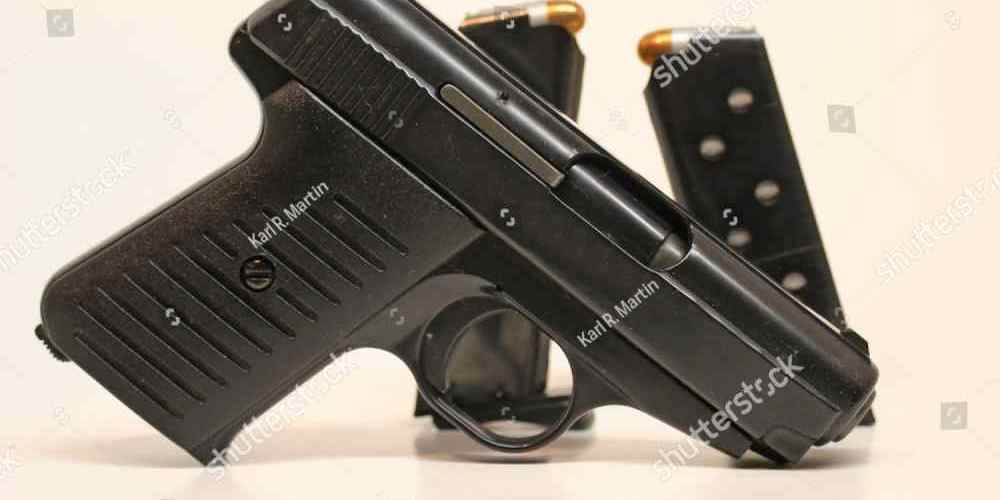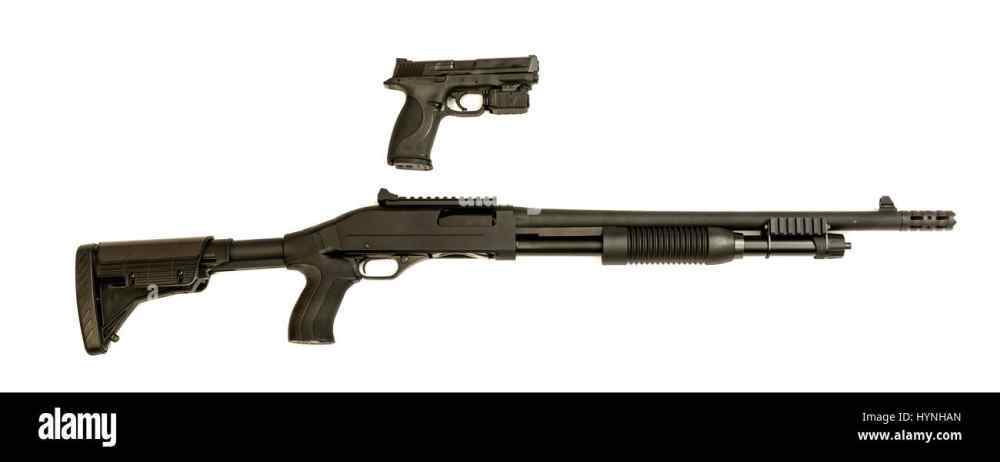“Barrel length: the key to unlocking maximum ammo performance in pistols.”
Accuracy
When it comes to shooting accuracy, barrel length is a crucial factor that can greatly impact the performance of ammunition in pistols. The length of a pistol’s barrel plays a significant role in determining the velocity, accuracy, and recoil of a bullet as it travels down the barrel and exits the muzzle.
In general, longer barrels tend to produce higher velocities and more consistent accuracy compared to shorter barrels. This is because longer barrels provide a longer distance for the expanding gases from the burning gunpowder to push against the bullet, resulting in increased muzzle velocity. Higher velocities can lead to flatter trajectories and improved accuracy at longer distances.
Additionally, longer barrels also tend to have a greater sight radius, which can help shooters align their sights more accurately and consistently. A longer sight radius allows for more precise aiming and can help reduce the margin of error when shooting targets at various distances.
On the other hand, shorter barrels typically result in lower velocities and reduced accuracy compared to longer barrels. Shorter barrels have less time for the gases to act on the bullet, which can lead to decreased muzzle velocity and potentially less consistent performance. Additionally, shorter barrels may have a shorter sight radius, making it more challenging for shooters to achieve precise alignment of their sights.
It is important to note that while barrel length can impact accuracy, there are other factors that also play a role in determining how well a pistol performs. Factors such as bullet weight, bullet shape, rifling twist rate, and overall firearm design can all influence accuracy and performance.
When choosing a pistol for shooting accuracy, it is essential to consider how barrel length will affect the performance of different types of ammunition. For example, some types of ammunition may perform better with longer barrels due to their design or intended use. Conversely, other types of ammunition may be better suited for shorter barrels based on their characteristics and ballistic properties.
Ultimately, finding the right balance between barrel length and ammunition performance is key to achieving optimal shooting accuracy with a pistol. It may require some experimentation and testing with different types of ammunition to determine which combination works best for your specific needs and preferences.
In conclusion, barrel length is a critical factor that can significantly impact the performance of ammunition in pistols when it comes to shooting accuracy. Longer barrels tend to produce higher velocities and improved accuracy compared to shorter barrels, while shorter barrels may result in lower velocities and reduced accuracy. Understanding how barrel length affects ammunition performance can help shooters make informed decisions when selecting a pistol for shooting accuracy. By considering factors such as sight radius, muzzle velocity, and overall firearm design, shooters can optimize their shooting performance and achieve greater accuracy with their pistols.
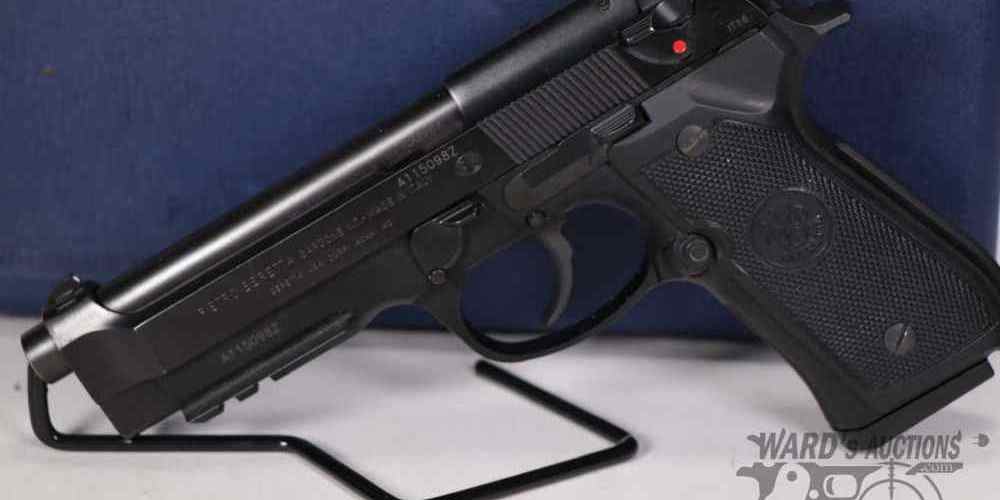
Recoil
When it comes to choosing a pistol for self-defense or target shooting, there are many factors to consider. One of the most important aspects to think about is the barrel length of the gun. The barrel length can have a significant impact on the performance of the ammunition being used. In this article, we will explore how barrel length affects ammo performance in pistols, specifically focusing on recoil.
Recoil is the backward movement of a gun when it is fired. It is caused by the force of the expanding gases pushing against the bullet as it travels down the barrel. The amount of recoil felt by the shooter can vary depending on several factors, including the caliber of the ammunition and the weight of the gun. However, one often overlooked factor that can affect recoil is the length of the barrel.
In general, longer barrels tend to reduce recoil compared to shorter barrels. This is because longer barrels provide more space for the expanding gases to dissipate before they exit the muzzle. As a result, there is less force pushing back against the shooter when they pull the trigger. This can make shooting a pistol with a longer barrel more comfortable and easier to control.
On the other hand, shorter barrels can increase felt recoil due to the fact that there is less space for the gases to expand before exiting the muzzle. This can result in a sharper and more abrupt recoil impulse, which can be more difficult for some shooters to manage. Additionally, shorter barrels may also produce louder muzzle blasts and more muzzle flash due to the higher pressure created by the closer proximity of the bullet to the end of the barrel.
It is important to note that while longer barrels generally reduce recoil, there are exceptions to this rule. For example, pistols with ported barrels or compensators may actually increase felt recoil despite having a longer overall length. This is because these devices redirect some of the gases upward or outward, which can cause additional muzzle rise and perceived recoil.
When selecting a pistol for self-defense or target shooting, it is essential to consider how barrel length will affect recoil and overall performance. If you are sensitive to recoil or have trouble controlling a gun with sharp recoil impulses, you may want to opt for a pistol with a longer barrel. Conversely, if you prefer a more compact and maneuverable gun, you may choose a model with a shorter barrel despite potentially higher felt recoil.
In conclusion, barrel length plays a crucial role in determining how a pistol performs when firing ammunition. When it comes to recoil, longer barrels generally reduce felt recoil compared to shorter barrels due to providing more space for gases to dissipate before exiting the muzzle. However, there are exceptions to this rule, so it is essential to consider all factors when selecting a pistol for your needs. Ultimately, finding the right balance between comfort, control, and performance will ensure that you have an enjoyable shooting experience with your chosen firearm.
Velocity
When it comes to pistols, barrel length plays a crucial role in determining the performance of the ammunition. The length of the barrel directly impacts the velocity at which the bullet travels, which in turn affects accuracy and stopping power. Understanding how barrel length affects ammo performance is essential for any gun owner looking to optimize their shooting experience.
In general, longer barrels result in higher velocities, while shorter barrels produce lower velocities. This is because as the bullet travels down the barrel, it is propelled by expanding gases generated by the burning gunpowder. A longer barrel allows for more time for these gases to exert force on the bullet, increasing its speed as it exits the muzzle.
The increase in velocity with longer barrels is particularly noticeable with slower-moving ammunition such as subsonic rounds. These rounds benefit greatly from the extra length of a longer barrel, as they have more time to accelerate before leaving the gun. This results in improved accuracy and range for subsonic rounds fired from pistols with longer barrels.
Conversely, shorter barrels are more common in concealed carry pistols due to their compact size. While these pistols are easier to carry and conceal, they sacrifice some velocity compared to pistols with longer barrels. This reduction in velocity can lead to decreased accuracy and stopping power, especially at longer distances.
It’s important to note that while longer barrels generally result in higher velocities, there is a point of diminishing returns. Once a barrel reaches a certain length, the additional increase in velocity becomes negligible. This means that there is an optimal barrel length for each type of ammunition that maximizes performance without adding unnecessary bulk to the pistol.
In addition to velocity, barrel length also affects recoil and muzzle flip. Longer barrels tend to have less felt recoil and muzzle flip due to their increased weight and longer sight radius. This can make shooting more comfortable and accurate for inexperienced shooters or those sensitive to recoil.
On the other hand, shorter barrels have more pronounced recoil and muzzle flip, which can affect accuracy and follow-up shots. This is something to consider when choosing a pistol for self-defense or competition shooting, where fast and accurate shooting is essential.
In conclusion, barrel length plays a significant role in determining ammo performance in pistols. Longer barrels generally result in higher velocities, improved accuracy, and reduced felt recoil compared to shorter barrels. However, there is an optimal barrel length for each type of ammunition that balances performance with practicality.
When choosing a pistol, consider how barrel length will impact your shooting experience and choose accordingly. Whether you prioritize concealability, accuracy, or stopping power, understanding how barrel length affects ammo performance will help you make an informed decision when selecting your next pistol.
Concealability
When it comes to selecting a pistol for concealed carry, there are many factors to consider. One important factor that often gets overlooked is the barrel length of the pistol. The barrel length can have a significant impact on the performance of the ammunition being used in the pistol.
In general, shorter barrel lengths are better for concealability. A shorter barrel means that the overall size of the pistol will be smaller, making it easier to conceal under clothing or in a bag. This can be especially important for individuals who need to carry a pistol for self-defense but want to do so discreetly.
However, there is a trade-off when it comes to barrel length and performance. In general, longer barrel lengths tend to provide better accuracy and velocity. This is because a longer barrel allows for more time for the bullet to accelerate before leaving the barrel, resulting in higher muzzle velocities and more consistent trajectories.
Shorter barrels, on the other hand, can result in decreased accuracy and velocity. This is because the shorter length means that there is less time for the bullet to accelerate before leaving the barrel. Additionally, shorter barrels can also result in increased muzzle flash and recoil, which can affect follow-up shots.
Despite these drawbacks, many individuals still opt for pistols with shorter barrel lengths for concealability reasons. Fortunately, there are ways to mitigate some of these performance issues. For example, selecting ammunition specifically designed for shorter barrels can help improve performance.
There are several types of ammunition on the market that are designed specifically for use in pistols with shorter barrels. These rounds typically feature faster-burning powders that are optimized for use in compact firearms. By selecting ammunition that is designed for shorter barrels, shooters can help mitigate some of the performance issues associated with shorter barrels.
Another factor to consider when selecting a pistol for concealed carry is the type of ammunition being used. In general, lighter bullets tend to perform better in pistols with shorter barrels. This is because lighter bullets typically have higher velocities, which can help compensate for the decreased velocity caused by the shorter barrel.
Additionally, shooters should also consider the type of bullet being used. Hollow point bullets are generally recommended for self-defense situations as they expand upon impact, creating larger wound channels and increasing stopping power. However, shooters should be aware that hollow point bullets may not perform as well in pistols with shorter barrels due to decreased velocities.
In conclusion, barrel length can have a significant impact on the performance of ammunition in pistols. While shorter barrels are better for concealability, they can result in decreased accuracy and velocity. Shooters looking to optimize performance in pistols with shorter barrels should select ammunition specifically designed for compact firearms and consider using lighter bullets with faster-burning powders. By taking these factors into account, shooters can ensure that their concealed carry pistol performs optimally when it matters most.
Reliability
When it comes to selecting a pistol for self-defense or target shooting, there are many factors to consider. One important aspect that often gets overlooked is the barrel length of the pistol. The length of the barrel can have a significant impact on the performance of the ammunition being used. In this article, we will explore how barrel length affects ammo performance in pistols.
First and foremost, it is essential to understand the relationship between barrel length and muzzle velocity. Muzzle velocity refers to the speed at which a bullet leaves the barrel of a gun. In general, longer barrels tend to produce higher muzzle velocities compared to shorter barrels. This is because longer barrels allow more time for the gunpowder to burn completely, resulting in a more powerful shot.
Higher muzzle velocities can lead to increased accuracy and stopping power. When a bullet travels at a higher speed, it is more likely to maintain its trajectory and hit the intended target with greater force. This is particularly important in self-defense situations where every shot counts.
On the other hand, shorter barrels may sacrifice some muzzle velocity in exchange for improved maneuverability and concealability. Shorter barrels are easier to carry and handle, making them ideal for concealed carry pistols. However, it is essential to consider how this trade-off may impact the performance of the ammunition being used.
In addition to muzzle velocity, barrel length can also affect the recoil of a pistol. Recoil refers to the backward movement of a gun after firing a shot. Longer barrels tend to absorb more recoil compared to shorter barrels due to their increased weight and surface area. This can make shooting with a longer-barreled pistol more comfortable and manageable for shooters of all skill levels.
Furthermore, barrel length can influence the accuracy of a pistol. Longer barrels typically have a longer sight radius, which can help shooters align their sights more precisely and improve their aim. This is especially beneficial for target shooting or long-distance shooting where accuracy is crucial.
It is important to note that not all ammunition performs equally well in pistols with different barrel lengths. Some types of ammunition are optimized for use in specific barrel lengths and may not perform as effectively in pistols with different barrel lengths.
For example, certain types of ammunition are designed for use in pistols with shorter barrels and may not achieve optimal performance in pistols with longer barrels. Conversely, other types of ammunition are specifically engineered for use in pistols with longer barrels and may underperform in pistols with shorter barrels.
In conclusion, barrel length plays a crucial role in determining the performance of ammunition in pistols. Shooters should carefully consider their intended use for the pistol when selecting a barrel length that best suits their needs. Whether you prioritize accuracy, stopping power, or maneuverability, understanding how barrel length affects ammo performance can help you make an informed decision when choosing a pistol for your shooting needs.


